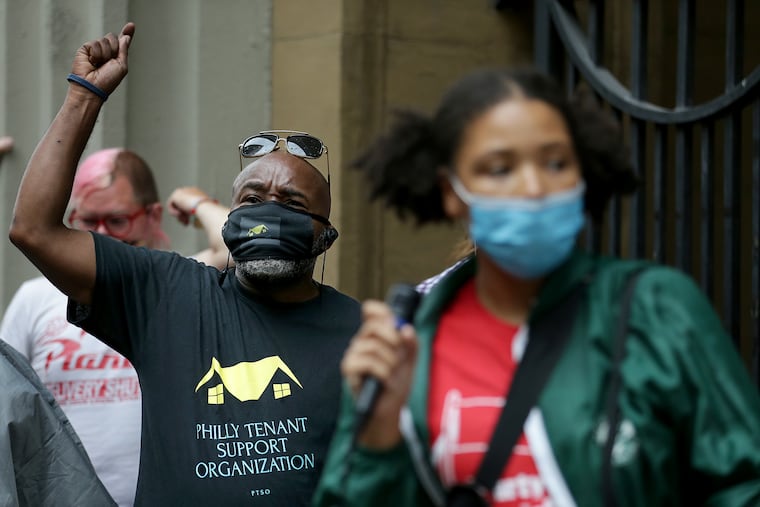Philadelphia landlords filed fewer than half the usual number of evictions after the federal moratorium ended
Philadelphia is in the top five cities with eviction filings below historical averages out of the 31 cities that Princeton’s Eviction Lab compared.

In the three months after the nationwide eviction moratorium ended, landlords in Philadelphia filed about 40% of the total evictions they would typically file in that period, according to Princeton University researchers.
Renter protections the city implemented to aid those who lost income during the pandemic helped place Philadelphia in the top five cities with eviction filings below historical averages out of the 31 cities that Princeton’s Eviction Lab compared in a report this month. Landlords filed about 2,180 evictions from the end of the Centers for Disease Control and Prevention’s national eviction ban in late August to late November. The city was one of eight that the Eviction Lab classified as having strong eviction protections.
» READ MORE: Philly’s program that prevents evictions will continue through 2022
Philadelphia landlords cannot file for evictions for nonpayment of rent before first attending mediation with tenants and applying for rental assistance through the city’s Eviction Diversion Program. The program has helped prevent eviction filings.
Eviction Lab researchers said it was encouraging that filings in the cities they monitor did not immediately spike after the end of the CDC eviction moratorium. Since the ban ended, landlords have filed a growing number of eviction cases. But filings are still far below pre-pandemic levels, according to the Eviction Lab. It’s more difficult for tenants with eviction filings to find future housing, even if cases are dismissed.
» READ MORE: Philly landlords and homeless services nonprofit are working together to prevent evictions
“Fears of an immediate tsunami of eviction cases in the months following the end of the federal eviction moratorium have thus far not been borne out,” Eviction Lab researchers said in this month’s report. “We caution that this does not serve as a prediction of what will happen over the coming months: the pace of filing may increase, especially as [Emergency Rental Assistance] programs stop taking applications” due to insufficient funds.
Emergency rental assistance may be deterring filings across the country, even in places without strong eviction protections, as landlords receive at least some of the funds they are owed. Federal measures such as expanded unemployment benefits and child tax credit payments have added cash to families’ budgets, Eviction Lab researchers said.
» READ MORE: Renters in parts of Pa. shut out of rent relief as counties elsewhere sit on millions in unused aid
Landlords also could be filing fewer evictions because they are choosing not to renew leases or are illegally and informally evicting tenants to get around eviction protections, researchers said. The extent to which these practices are contributing to lower eviction filing rates is unknown, since researchers can only reliably track eviction cases filed in court.
From the end of the federal eviction moratorium in late August to late November, New York City had 15% of the filings it typically would thanks to strong eviction protections. In most of the cities the Eviction Lab identified as having no protections, filings during that period stood at 70% or more of normal levels. In Las Vegas, one of those cities, eviction filings were above the historical average in the months following the end of the national moratorium.
» READ MORE: Advocates, officials try to prevent Philly’s coming wave of coronavirus evictions (From May 2020)
The Eviction Lab estimates that during the nearly yearlong federal eviction ban, landlords filed for at least 1.55 million fewer evictions nationwide than normal. During summer 2021, the number of eviction filings in the 31 cities the Eviction Lab compared was nearly half what it would normally be, based on historical averages.